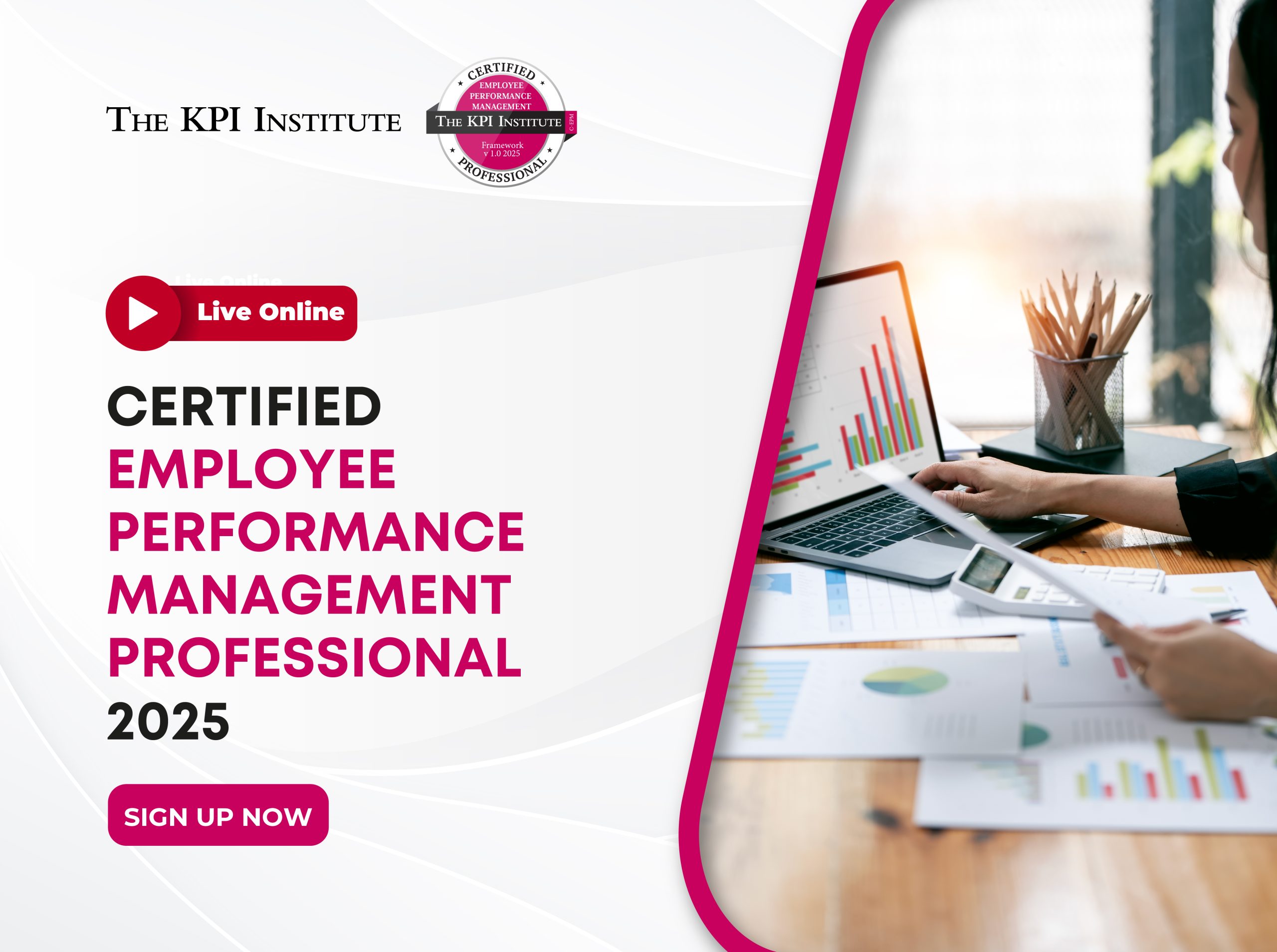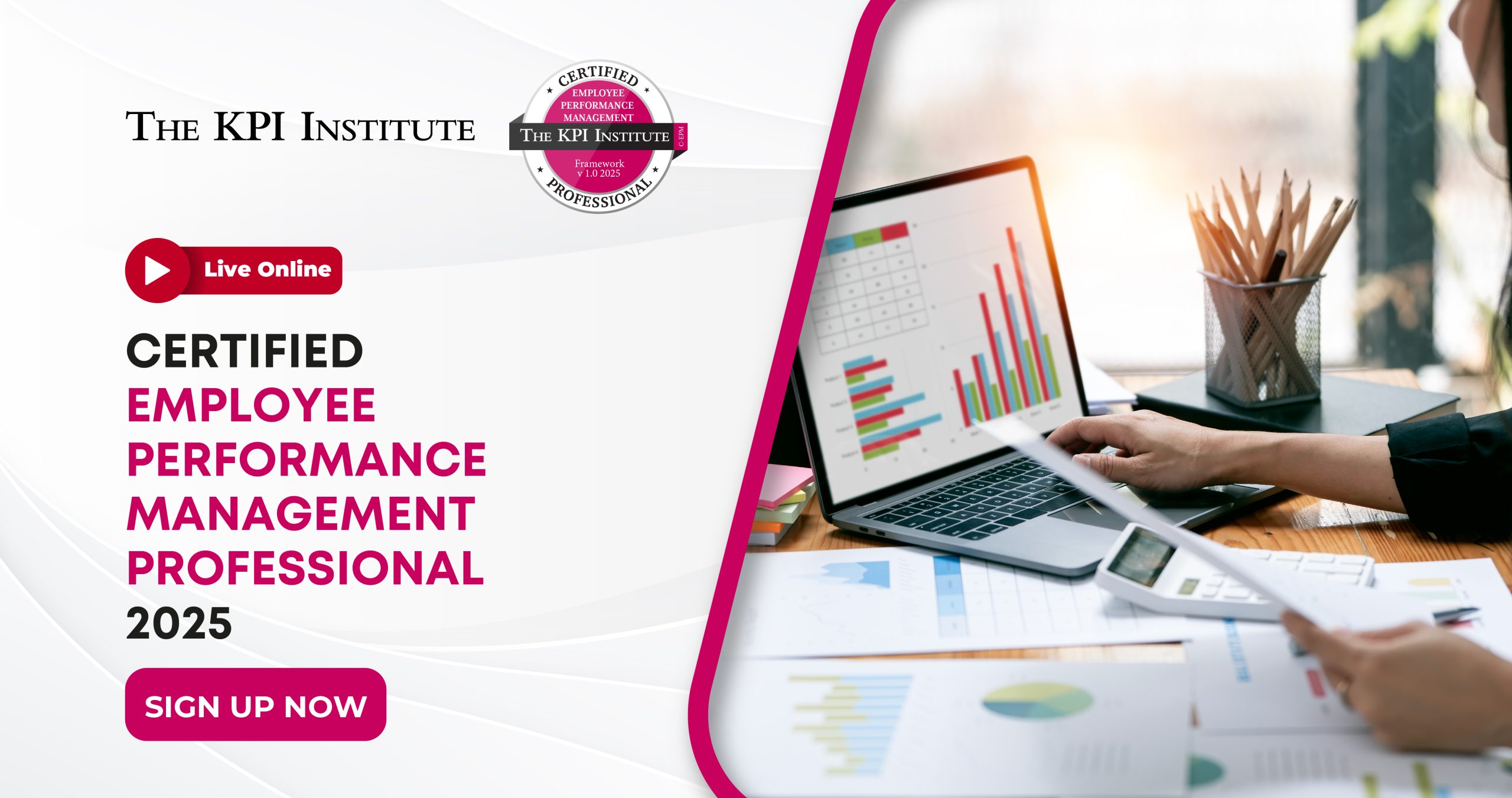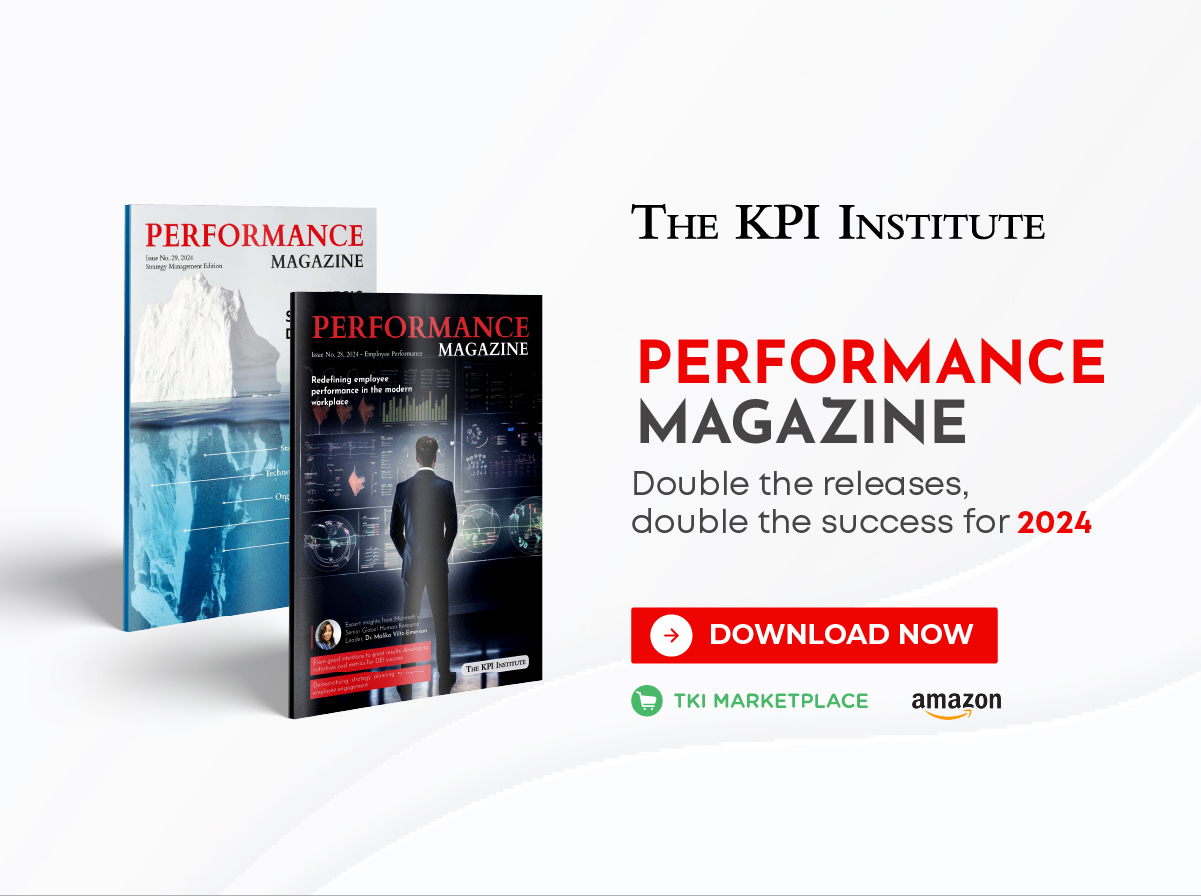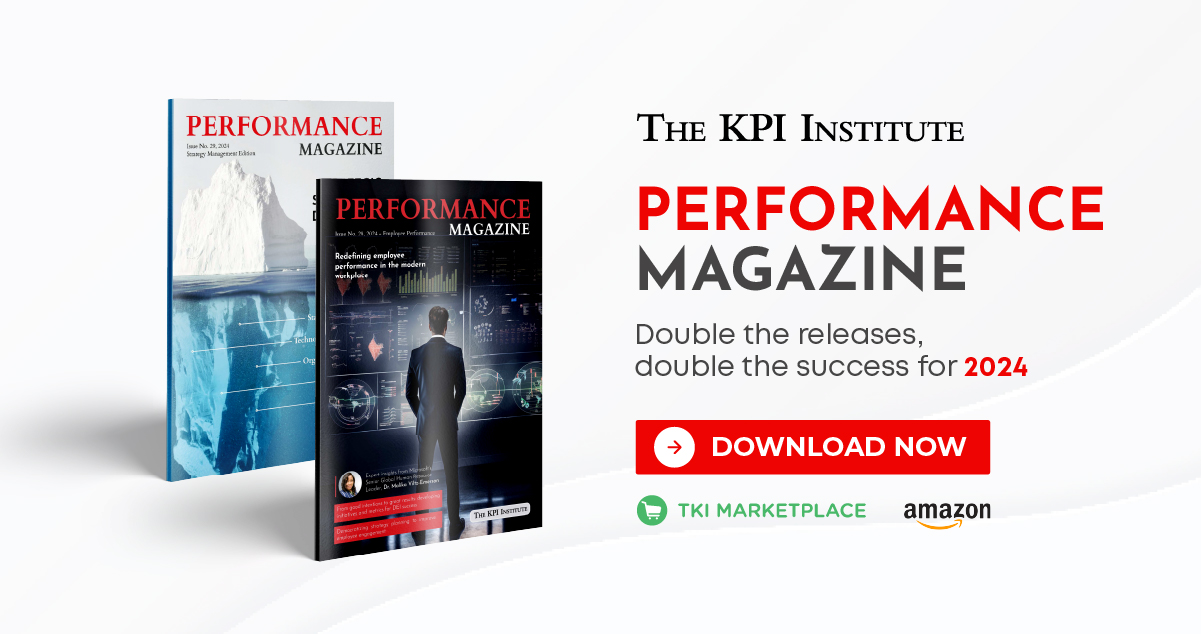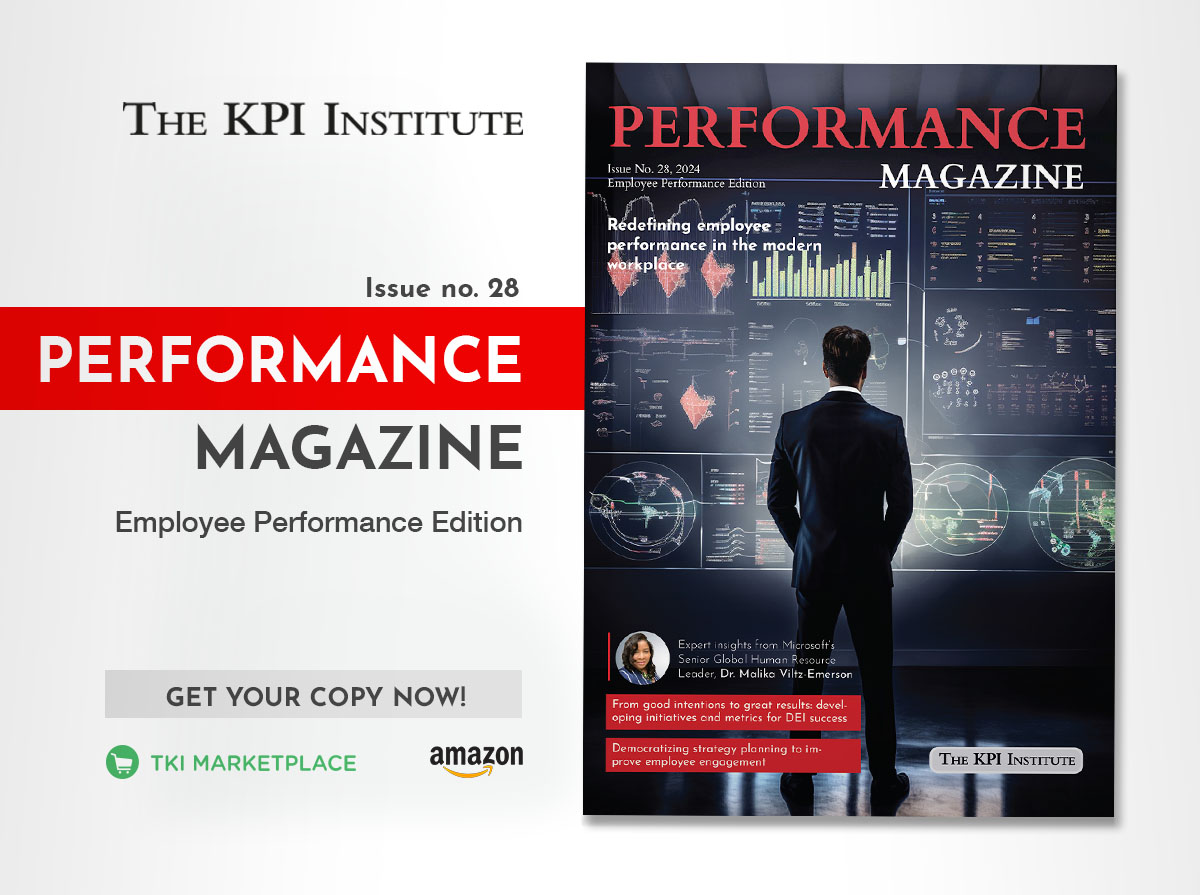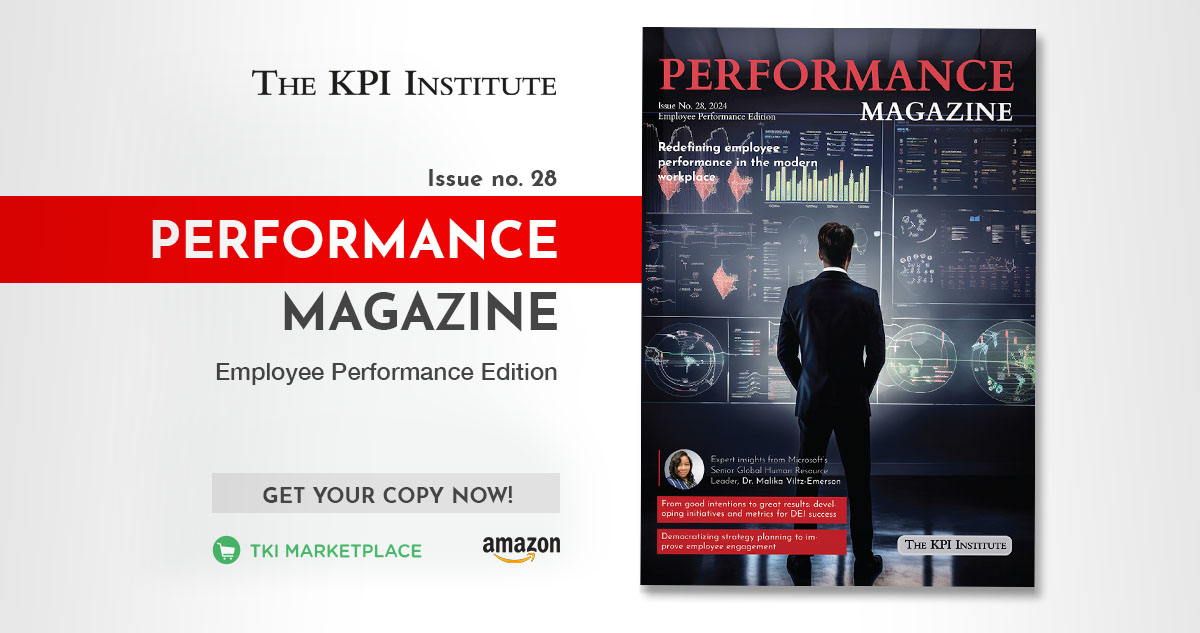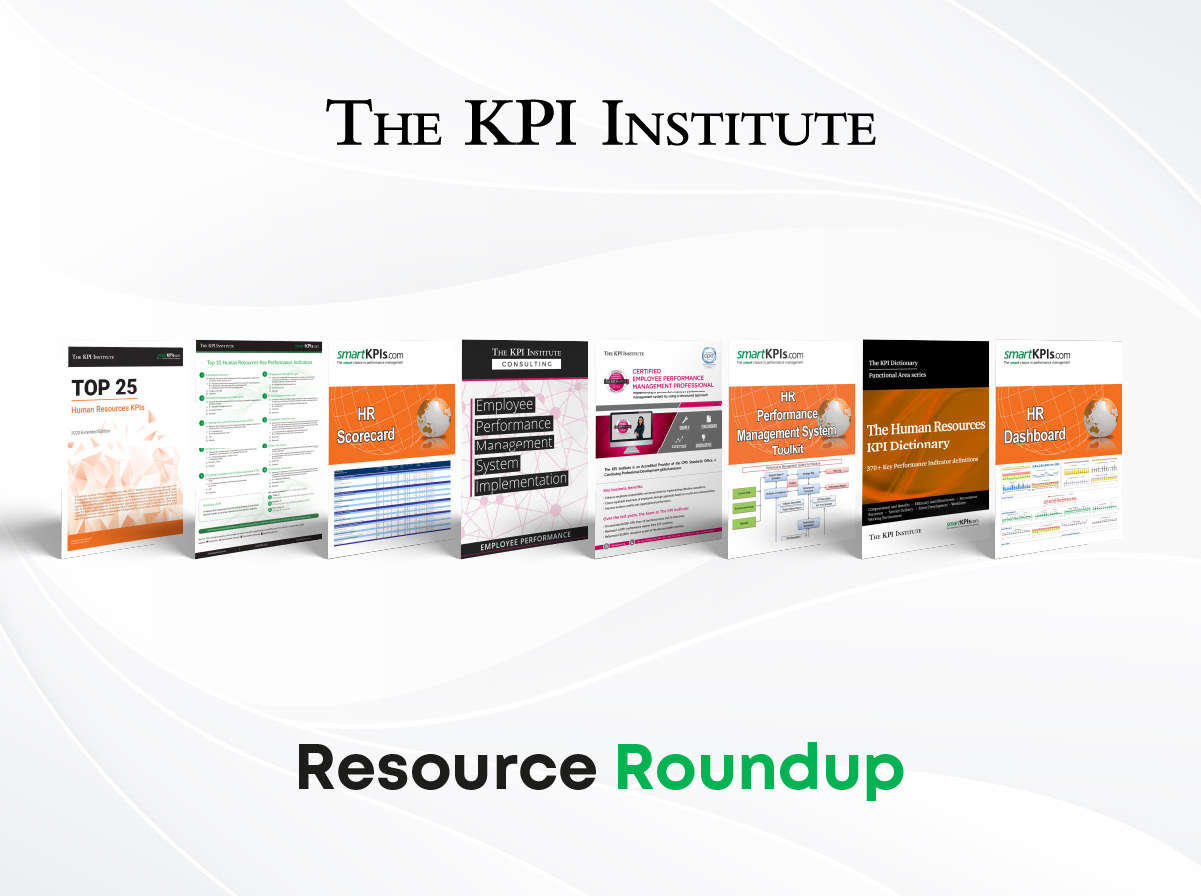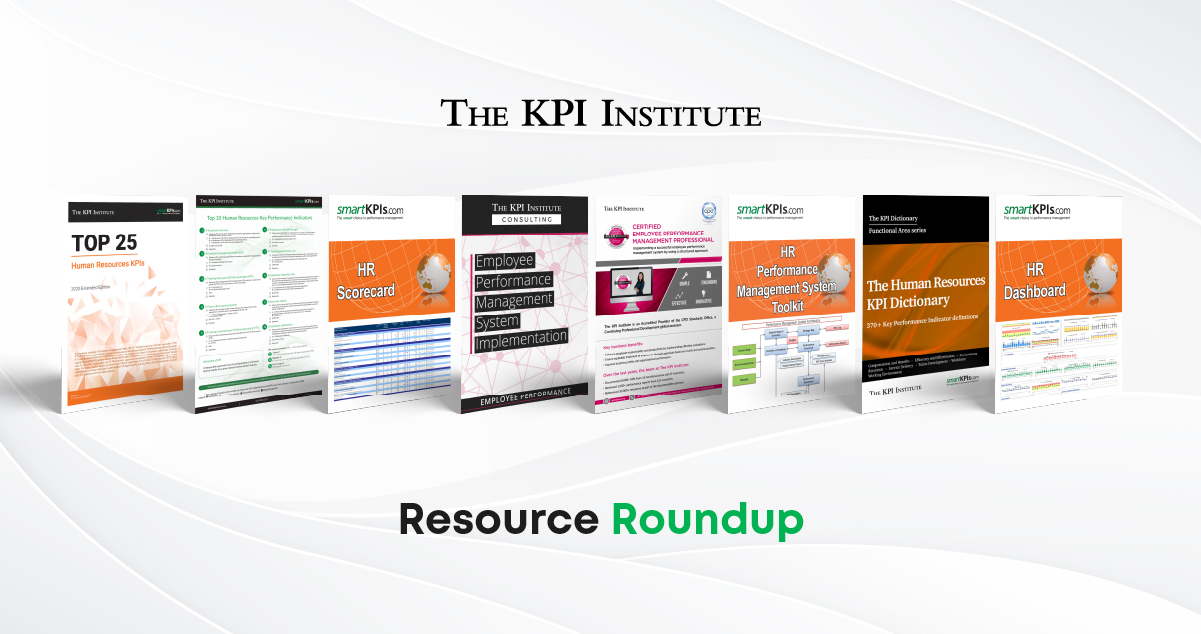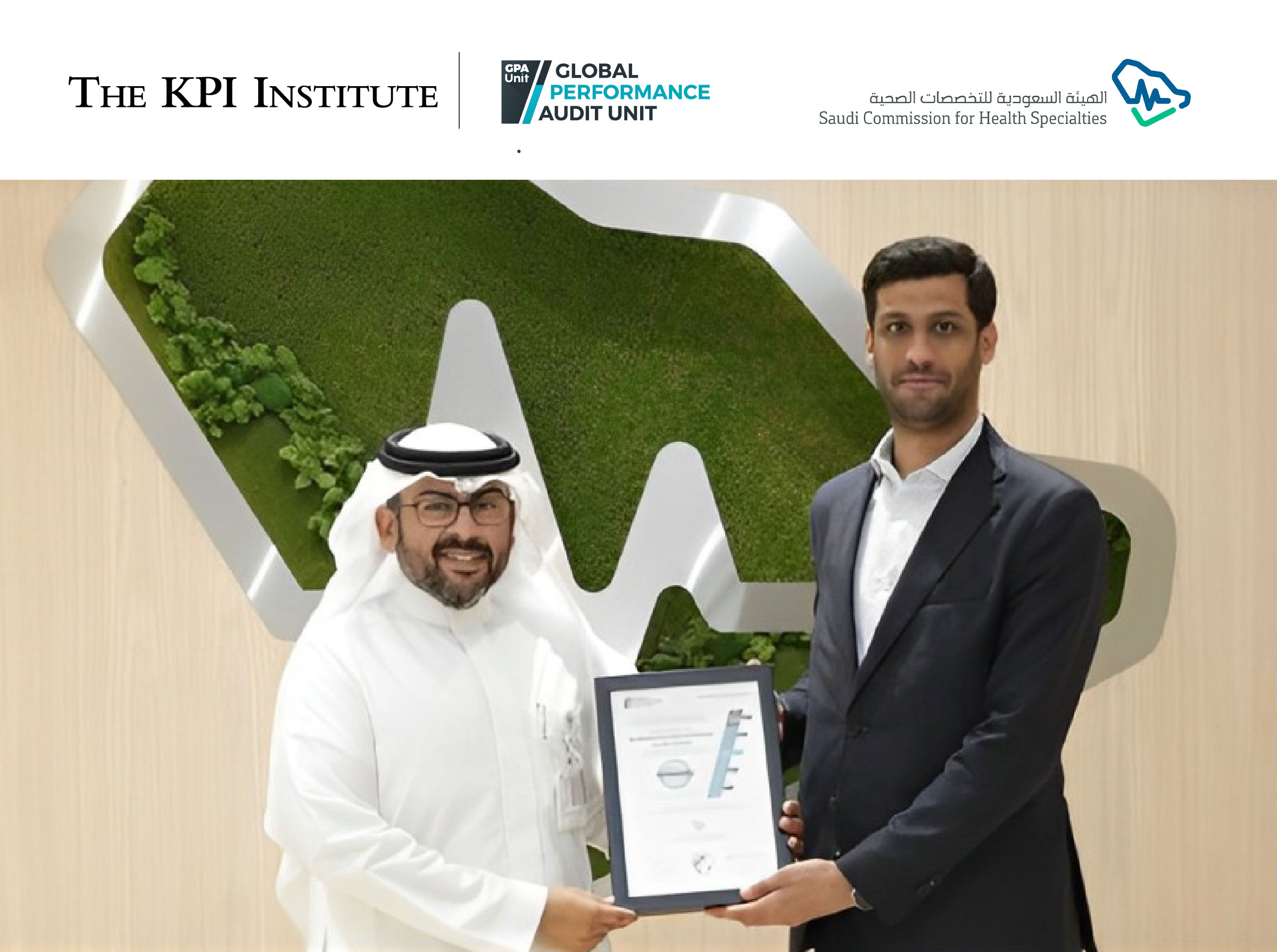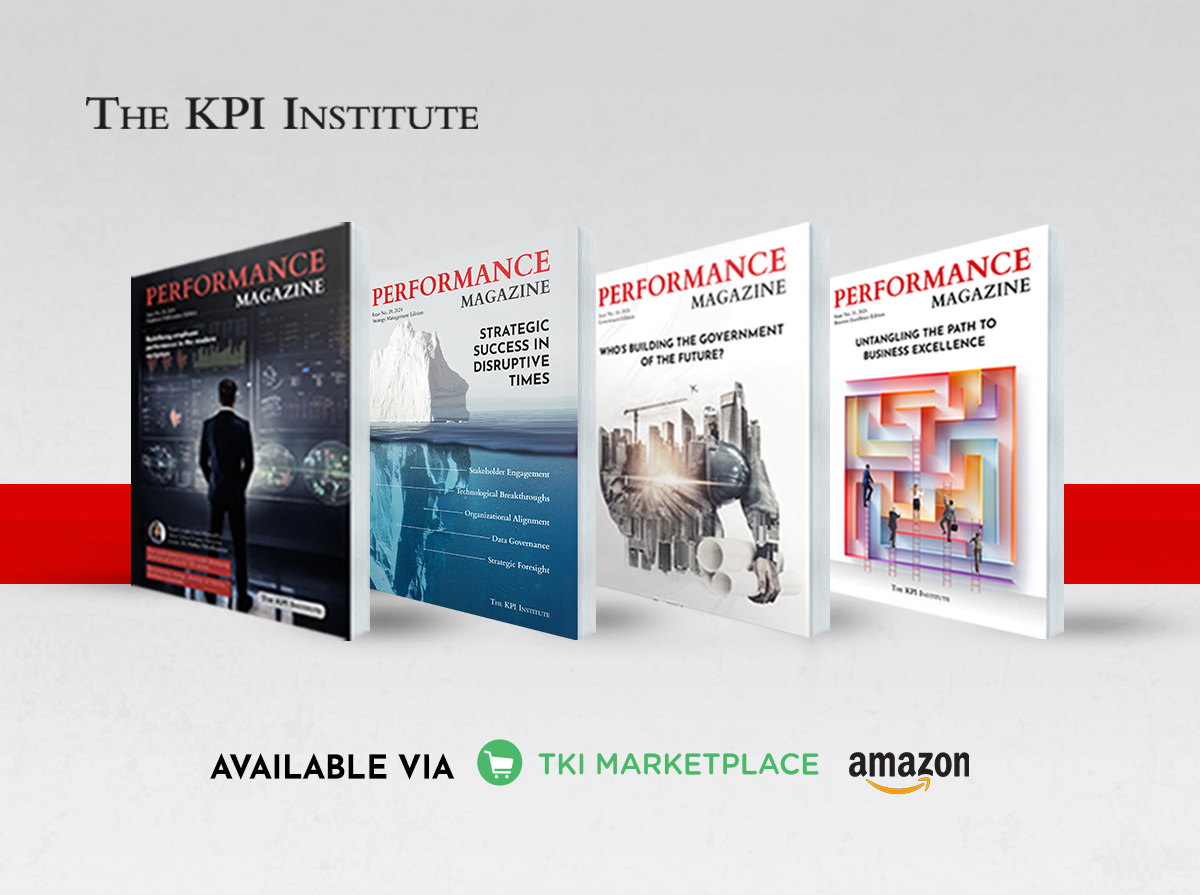
The best of 2024: Performance Magazine’s print collection highlights
January 29th, 2025 Posted by Kimberly Tilar Publications 0 thoughts on “The best of 2024: Performance Magazine’s print collection highlights”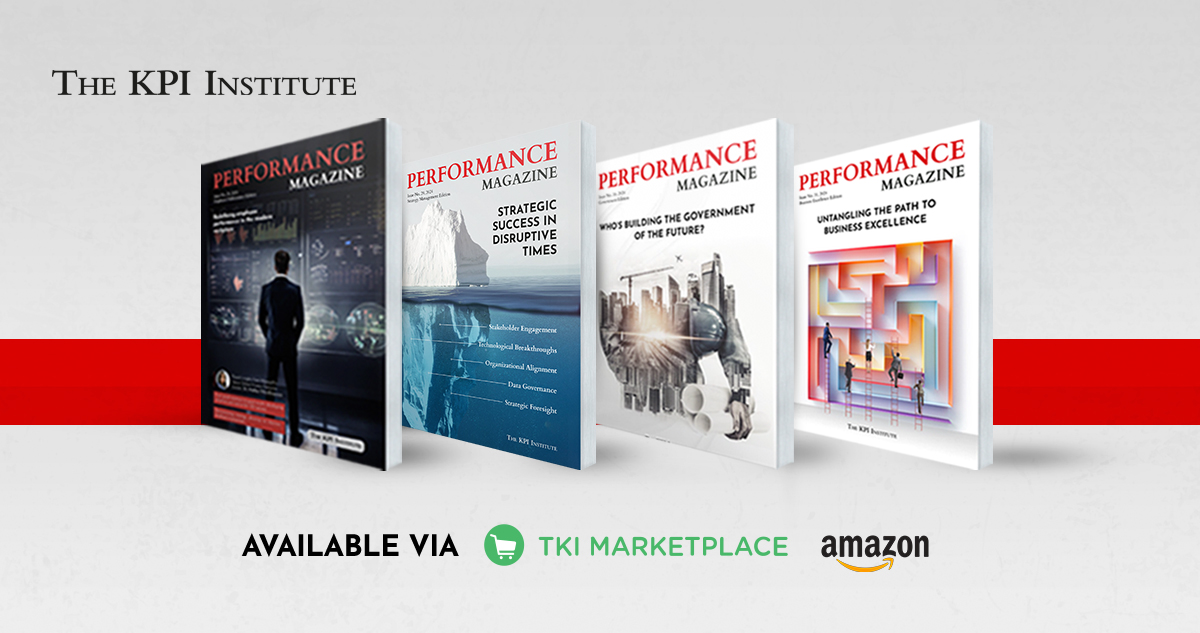
Just as companies refine their strategies to stay competitive, professionals must equip themselves with the right insights and tools to keep pace with a progressing field. In the world of strategy and performance management, staying informed is not just an advantage but a necessity.
Reflecting this commitment to continuous learning and excellence, Performance Magazine, a publication by The KPI Institute (TKI), an established global research organization, has remained a trusted source of industry insights, expert analysis, case studies, and emerging trends. In 2024, it reinforced its role as a reliable resource with the successful release of four special editions.
Performance Magazine Issue No. 28, 2024 – Employee Performance Edition
TKI’s first release of the Performance Magazine – Print Edition in 2024 explores the newest advancements in employee performance management, discovering how to harmonize individual objectives with organizational goals and use cutting-edge technologies to streamline relevant processes.
The cover story examines the significant impact of diversity, equity, and inclusion (DEI) on performance evaluation and talent management. DEI, a framework that promotes fair treatment and equal opportunities for all employees, is recognized as essential for improving organizational performance and fostering innovation.
In this edition, we got the opportunity to feature Dr. Malika Viltz-Emerson, a Senior Global Human Resource Leader at Microsoft, where she tackles numerous benefits of involving employees in managing and improving their performance.
To read the full interview and explore the entire magazine, download the free digital copy from TKI Marketplace. Alternatively, you can purchase the print edition on Amazon.
Performance Magazine Issue No. 29, 2024 – Strategy Management Edition
This edition uncovers the core elements of strategic success in times of disruption, from managing stakeholder engagement and adopting transformative technologies to fostering strategic foresight. To navigate the evolving work landscape, organizations dive deep into diverse perspectives, scrutinize data, and assess risks, all while considering the impact of culture and communication.
The cover story explores interventions that align with this approach, particularly those that foster an adaptive organizational culture and address resistance to change. Offering in-depth insights into organizational strategy, this edition covers planning, development, and execution, with a focus on best practices, case studies, and data-driven discussions. Readers will gain the tools to integrate diverse viewpoints into strategy implementation, empower employees in change management, and ensure data accuracy for informed decision-making.
Unlock the strategies for success in uncertain times—download your free digital copy of the magazine from the TKI Marketplace, or purchase the physical copy on Amazon today.
Performance Magazine Issue No. 30, 2024 – Government Edition
This edition of Performance Magazine offers an in-depth look at how pioneering nations improve government effectiveness through innovative strategies, robust performance management practices, and adaptability to emerging trends and technologies. The publication highlights governments excelling in these areas and examines their successful journeys based on TKI’s Government Services Index 2023.
In the Interviews section, we feature contributions from expert voices representing Saudi Arabia and the USA, with diverse backgrounds in public transportation, education, tourism, religious pilgrimages, and human resources.
In this edition, Dr. Keith Clinkscale returns for a follow-up interview to share the results and advancements of his initiatives in government strategy and performance management, with a special focus on innovation and the growing influence of Artificial Intelligence (AI) in shaping the future of government operations.
Shape the future and uncover the roadmap to improved governance. Get your hands on this magazine by downloading the digital version for free on the TKI Marketplace, or purchase the printed edition on Amazon.
Performance Magazine Issue No. 31, 2024 – Business Excellence Edition
The latest release of the Performance Magazine – Print Edition delves into practical strategies and insights that drive continuous improvement, helping organizations transition from good to great and ultimately attain excellence. It highlights how top organizations excel in operational efficiency, customer satisfaction, and workforce development, providing a thorough understanding of what it takes to thrive in a competitive business environment.
In collaboration with the Global Performance Audit (GPA) Unit, a division established by TKI, this edition explores the effective implementation of performance management systems through maturity assessments. It features the GPA Unit’s maturity model frameworks, valuable insights, client success stories, and expert interviews.
The cover story, “Closing the Strategy-Execution Gap: A Fundamental Step for Business Excellence” by Cristina Mihăiloaie, emphasizes the significance of aligning processes, principles, and people to address key challenges in strategy execution. This alignment is portrayed as a crucial element for attaining sustained success.
Dive more into the latest trends, strategies, and tools for enhancing performance management systems! Download the Performance Magazine Issue No. 31, 2024 – Business Excellence Edition on TKI Marketplace, or grab a physical copy via Amazon.

